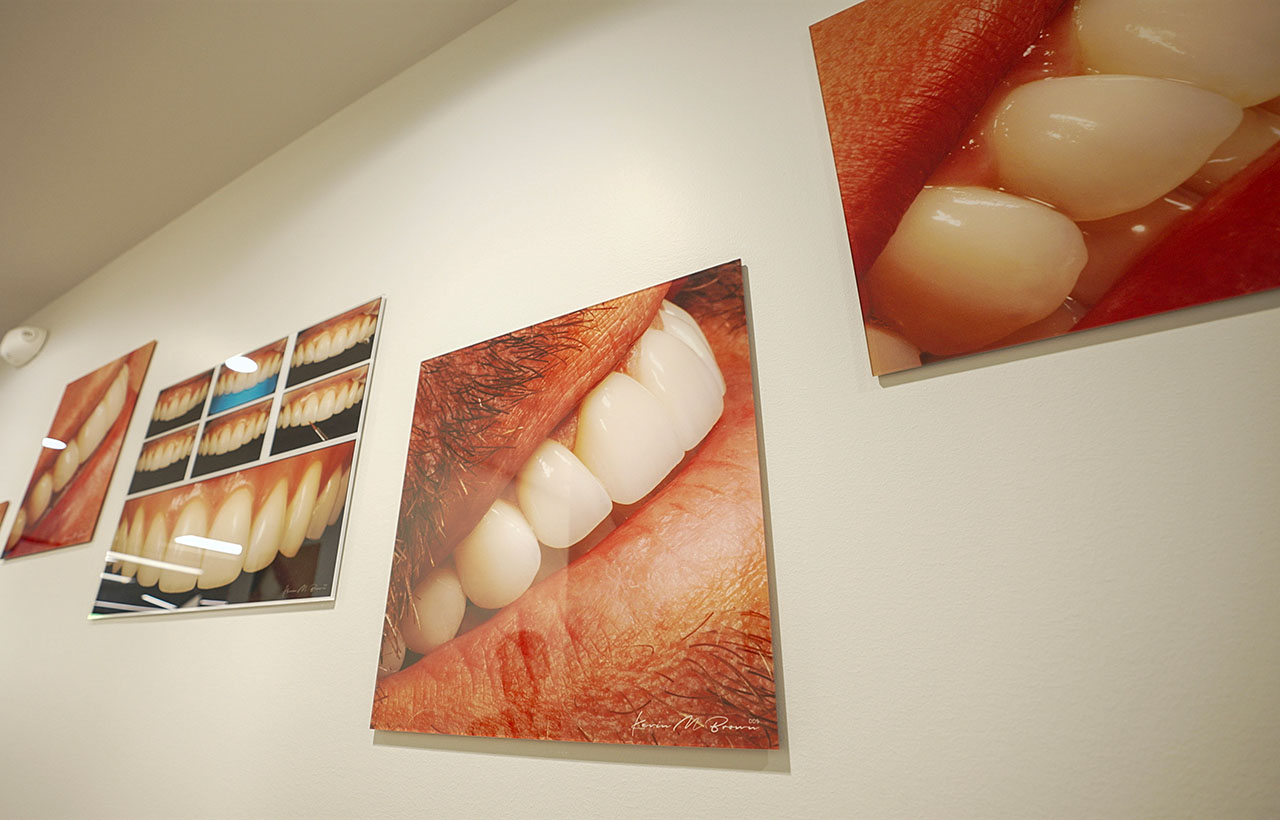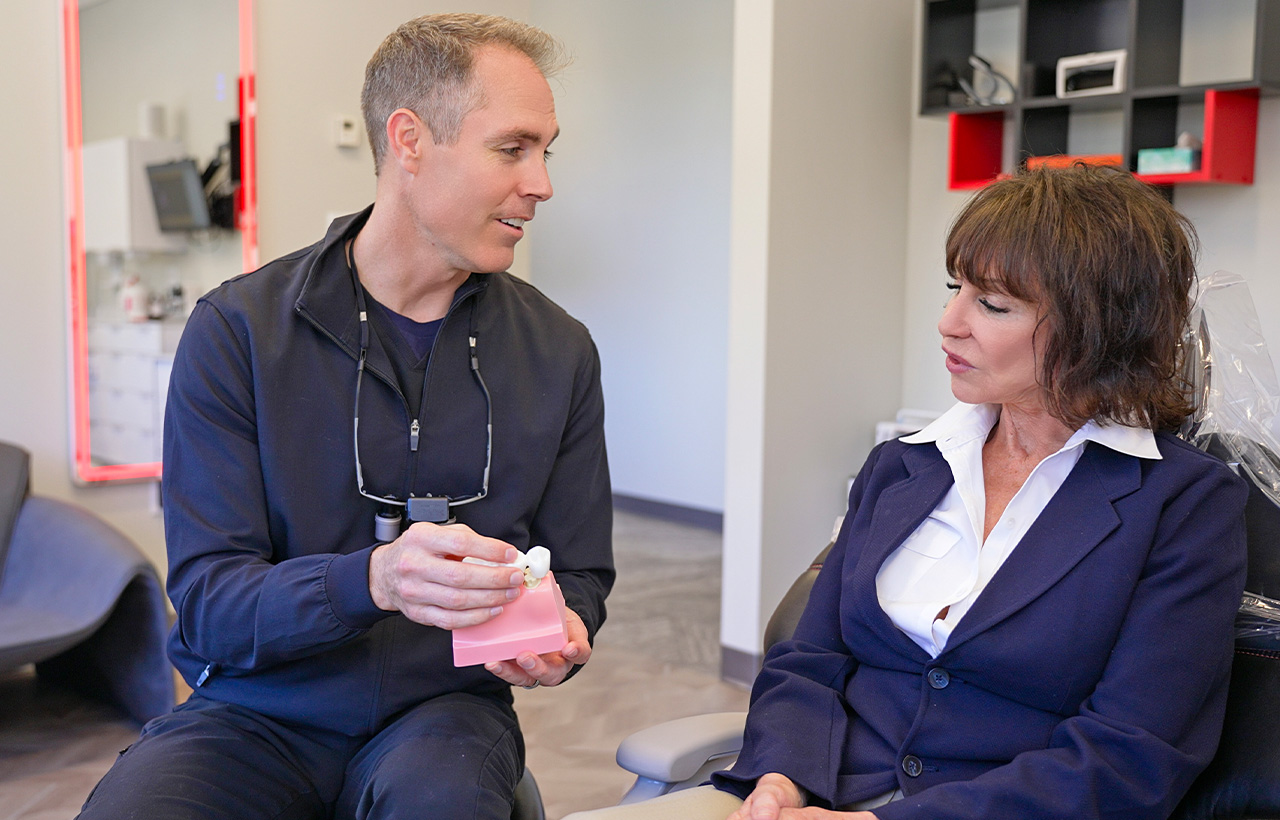Dental Implants Stop Bone Loss. Here’s How.

It’s not uncommon to lose bone density in the jaw after you lose a tooth. That’s why we recommend booking a consultation with one of our dental implant dentists in Bellevue, WA, to explore your treatment options. At our Greater Seattle dental office, we’re proud to offer dental implants to restore the full function and appearance of your smile.
Let’s explore how the dental implant procedure can help stop bone loss and why it’s considered a superior option for tooth replacement.
Understanding Bone Loss After Tooth Loss
Bone loss in the jaw occurs because the jawbone needs stimulation to maintain its density and form. This stimulation comes from the pressure and forces exerted by chewing and biting. When a tooth is lost, the lack of stimulation results in the resorption of the bone where the tooth root once was. Over time, this can lead to significant bone deterioration, affecting facial structure and oral health.
The Mechanism of Bone Stimulation
The roots of natural teeth play a critical role in maintaining jawbone health. They provide the necessary stimuli to keep the bone tissue active and healthy. When a tooth is lost, the absence of the root means the bone no longer receives these signals, leading to bone resorption. This process can begin soon after tooth loss and progress over time, resulting in a loss of bone height and density.
How Dental Implants Work
Dental implants are designed to mimic natural teeth in both function and appearance. They consist of three main components: the implant post, the abutment, and the prosthetic tooth. The implant post is a titanium screw that is surgically placed into the jawbone, acting as a replacement root. Over time, the bone grows around the implant in a process called osseointegration, securing it firmly in place.
Stimulation and Bone Preservation
One of the primary reasons dental implant treatment is effective in stopping bone loss is because it restores the stimulation that the bone needs. The titanium post of the implant acts like a natural tooth root, transmitting chewing forces to the jawbone. This stimulation helps maintain bone density and prevents resorption, preserving the integrity of the jawbone.
Advantages Over Other Tooth Replacement Options
Other tooth replacement options, such as dentures and bridges, do not provide the same level of bone stimulation as dental implants. Dentures rest on the gums and can even accelerate bone loss due to the pressure they place on the gum tissue.
Bridges, while good at preserving adjacent teeth, do not address the issue of bone loss at the site of the missing tooth. Only dental implants provide the necessary stimulation to prevent bone resorption.
Long-Term Benefits of Dental Implants
The benefits of dental implants extend beyond stopping bone loss. They offer a permanent solution to tooth loss, providing stability and functionality comparable to natural teeth. Implants also help maintain facial structure, prevent the shifting of adjacent teeth, and improve overall oral health.
With proper care, dental implants can last a lifetime, making them a cost-effective and long-term investment in oral health.
Book a Dental Implant Consultation
Want to learn more about dental implants? Our dental implant dentists in Bellevue, WA, are proud to serve patients and their families throughout the Greater Seattle area. To book a smile consultation, please call Minimally Invasive Dental Aesthetics at (425) 454-7690. You may also fill out our online contact form and a member of our team will reach out to you soon.


